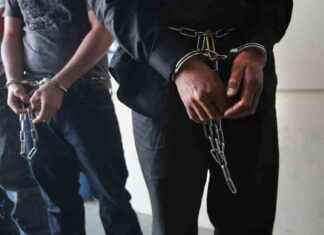The member states of the UN Security Council took note, Thursday, September 28, of the request from the Democratic Republic of Congo (DRC) for an accelerated withdrawal of blue helmets, even if some were concerned about the impact of a “rushed” departure for the civilian population.
Last week at the UN, Congolese President Félix Tshisekedi insisted on an “accelerated” withdrawal of his country’s UN peacekeeping mission (MONUSCO) from the end of 2023, not end of 2024. “We want the Security Council to take fully into account the concrete and realistic demands of the Congolese authorities,” French Ambassador to the UN Nicolas de Rivière said on Thursday, insisting on an “orderly” withdrawal, in “ close collaboration” between Kinshasa and the UN.
Blue helmets have been present in the DRC for nearly twenty-five years and the Council must renew in December the mandate of MONUSCO, whose effectiveness in protecting civilians is contested by Kinshasa and part of the population.
While the security crisis does not abate in the east of the country, several member states have expressed doubts about the advisability of transferring MONUSCO tasks to Congolese forces in an accelerated manner. “The United States is frankly concerned that forces in the DRC and the region are not prepared to meet the requirements to ensure the security of the Congolese population,” said U.S. Ambassador Linda Thomas-Greenfield.
The United Kingdom, for its part, is ready to consider “a reduction” in the number of peacekeepers “in accordance with the government’s request,” noted Deputy Ambassador James Kariuki. But “the consequences of a hasty departure would be serious,” he warned.
Consolidate in the east
The head of Congolese diplomacy, Christophe Lutundula, deploring the “fixed” attitude of the Security Council, warned against any temptation to simply reconfigure MONUSCO. “A Monusco bis (…) would not be an error, but a mistake,” he insisted, demanding a “timeline” for the withdrawal plan.
“We need to discuss with our partners to see what exactly they have in mind,” commented MONUSCO head Bintou Keita, noting that it would not be “wise” at this stage to discuss a date for the withdrawal. full of blue helmets.
In 2020, the Security Council began a cautious disengagement, approving a phased withdrawal plan setting broad parameters for transferring responsibilities from peacekeepers to Congolese forces.
In a report published in August, UN Secretary General Antonio Guterres, without specifying a timetable, spoke of initially reducing the number of peacekeepers from 12,500 to 10,500, while consolidating their presence in the territories. at risk from the East.






